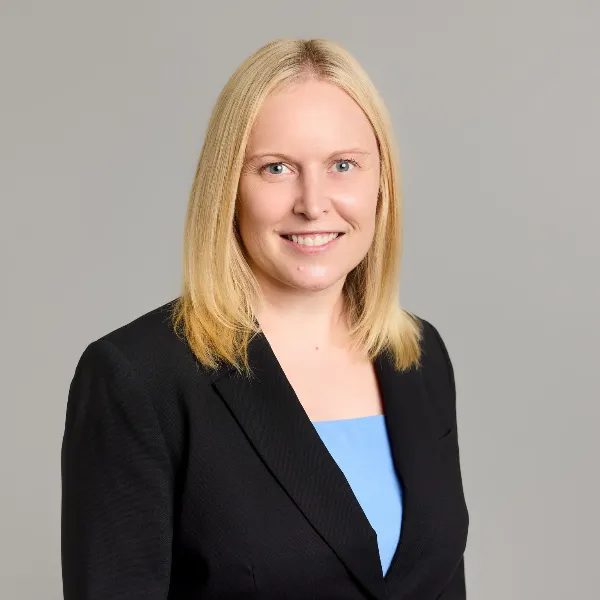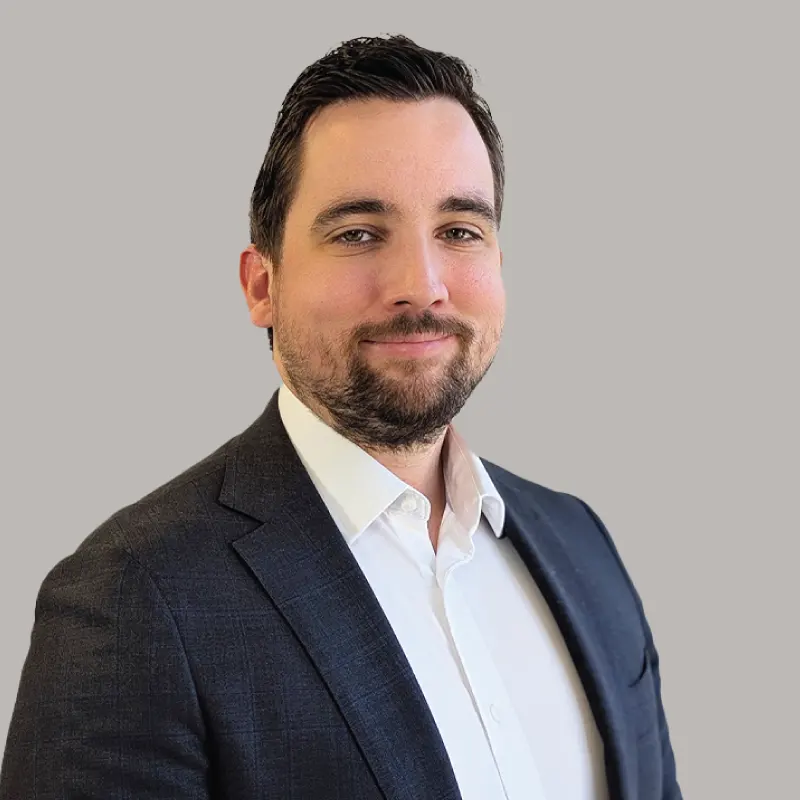Financial
Roadmap
A clear, personalised path to your financial goals.

Business owners spend years devoting their time and energy to building a successful enterprise. Long, busy days are often followed by sleepless nights… but the rewards are almost immeasurable when the business goals are achieved.
But for many of the privately owned businesses in Australia, there is no formal succession plan in place… leaving uncertainty as to how operations will continue and how owners intend to exit the business when it comes time for them to move on. Proactive business succession planning is critical, especially as an ever-increasing number of baby boomer business owners approach retirement.
Before you exit your business, it’s essential you have a well-constructed plan. Here we take a closer look at succession planning and David Pitt, First Financial Principal, discusses the role buy/sell insurance can play.
A business succession plan outlines the change of ownership process and supports a smooth transition when you or one of your business partners decides to retire or has to suddenly leave the business. It is a valuable tool to make sure that you can access the equity you have within your business while also preserving its future viability.
It can often be a difficult or delicate subject to discuss, as it requires addressing the inevitable future. Business owners will eventually leave the business, and if that business is to be sustained past their departure, there must be plans in place for successors to continue.
Investing the time in succession planning can help facilitate seamless progression through the transfer of equity and enable the long-term survival of the business.
Businesses that don’t have a succession plan are at risk. If something were to happen and either you or a business partner left unexpectedly… for instance due to health reasons or even death, the business could lose the wealth you have spent years building. David Pitt explains:
“Often business owners think they will worry about a succession plan later… but ‘later’ can cause issues for a spouse or key people remaining in the business when something unexpected happens.
For instance, if a key person has suffered an injury and can’t work or has suddenly passed away… businesses don’t run as profitably, or they don’t function the same way.
This can have a significant effect because it might be more difficult to obtain funding… banks won’t lend the business money because profits are down, or the key person is no longer there. In turn, this opens the door for competitors to take advantage of the situation. The business becomes vulnerable, when it should be a straightforward transition.”
Not having a formal succession plan can result in many adverse outcomes. For example, family members might not receive the full value of business shares, remaining business partners might have to work with the spouse or a child of the departed partner who has inherited shares in the business, the business might suffer liquidity issues, or it may experience a dramatic reduction in profitability.
All of these scenarios can be avoided with a well-considered succession plan that includes a buy/sell agreement. In addition, the inclusion of specific insurance cover can help provide funding for remaining partners to buy out the departed partner’s share of the business.
A buy/sell agreement is somewhat like a will for your business. It is a contractual agreement that outlines the rights of all individuals involved and identifies relevant responsibilities. It also sets out terms relating to the timing and funding of the sale or purchase of shares within the business.
Buy/sell insurance is a key component of this agreement and can help reduce the risk of financial issues when a partner leaves the business due to a significant medical event, total permanent disability or death.
Essentially, the insurance pays a lump sum that enables the remaining business owners to purchase the departing owner’s equity. It helps to ensure that the business is able to continue trading and not suffer any significant financial challenges through the change of ownership process.
This lump sum eliminates the need for the remaining owners to take out loans… or worse still, sell the business to pay the departing owner or their estate.
Being able to utilise the lump sum to purchase the equity from the departed owner’s estate reduces the risk of the remaining owners having to form a new working partnership with estate beneficiaries. For businesses without buy/sell agreements in place, it is often a cause of friction when a spouse or child becomes involved.
As part of taking out buy/sell insurance, the partners need to come to an agreement on how they will value the business. They also need to decide on the ownership of the insurance policy. David explains how value is determined and highlights the complexities of ownership:
“In order for the buy/sell insurance policy to be purchased, business partners need to have an idea of what the business is worth. This is usually calculated by a multiple of earnings… something between two, three or four times the recurring revenue of the business. This figure is then justified by looking at competitor businesses. An accountant can help with the valuation, but it is usually set out as a multiple of earnings as agreed by business partners.
The complexity lies in the ownership of the policy, as each method has different tax implications. For most businesses, the preferred method of billing is to have a self-owned policy as this is tax effective and has no capital gains tax payable. Once you get into cross-ownership, entity-ownership or family trust ownership, taxes can be applied including income tax, CGT and fringe benefits tax.”
The differences between each ownership method and the associated tax liabilities are complex. We recommend seeking professional advice to help you determine which option best suits your needs.
Another insurance that you could consider as part of your business succession plan is Key Person Insurance. David outlines how this is useful:
“If you are a key person in the business and you suddenly leave, the profit and functionality of the business is likely to decrease. Plus, to replace you, the business would need to advertise and probably pay more to recruit someone new into your role.
With a key person policy, the insurance is owned and paid for by the business. It is set at a specific figure – for example it might be for $200,000. That figure pays to hire and train a new person, it provides the salary required to replace you and helps to stop the disruption to the business and minimise the revenue drop that would occur from losing you.
It covers the key person for trauma, total and permanent disability and death. As the premium is paid by the business, the settlement money goes back to the business. It’s important to note that premiums are tax deductible, but the money paid to the business is taxable, so it’s essential that you complete a proper assessment and understand all the tax implications before taking out the insurance.”
If you are a business owner, business succession planning is an important part of your retirement planning. And it is also critical for your family, should something unexpected happen. Having a secure plan in place can help provide you with peace of mind, knowing that you and your loved ones will remain financially secure.
If you’d like to find out more about Buy/Sell Insurance or have any questions about your financial future, please contact our team to discuss your situation today. Read more Financial Planning articles.
Every client journey begins with a conversation. We look closely at where you are now, what matters to you, and what’s possible. Then we structure our advice to match.
A clear, personalised path to your financial goals.
Proactive strategies to maximise your tax savings.
Tailored plans aligned with your goals and risk profile.
Regular guidance to keep your plan on track.
Early retirement and working professional
When Tim received an overseas medical settlement, he and Adam had just 14 days left in a 90-day window. They needed clear guidance, fast. A referral led them to First Financial.
“We’re in totally different life stages, but First Financial built a strategy that supports us both. From urgent legal steps to ethical investing, they handled every detail with calm, care, and real expertise. It’s financial freedom without compromise, and we couldn’t have done it without them.”

Retired
Jan's husband managed the finances until entering aged care. Jan gradually stepped into the financial picture with First Financial’s support.
“The money just comes in. I don’t have to think about it. And I know they’re always there. They’ve always been there in the background, just quietly making things work.”

Newly retired
As retirement neared, Larry and Virginia were ready to enjoy travel, family, and freedom, without uncertainty. A friend recommended First Financial, and from the first meeting, they had a clear plan, a safety net, and people they trusted.
“We’ve travelled the world, Europe, Sri Lanka, Vietnam, without once stressing about the money. They made everything feel simple and gave us the confidence to live well. We feel secure because we know exactly where we stand, and that peace of mind means everything.”

Retired and semi-retired
Referred by friends who were helped through aged care, Craig sought secure financial guidance after inheriting funds.
“We feel very secure with First Financial, the income just comes in, and we know everything is being looked after. It’s not just safe, it’s smart. We’ve recommended them to others because we genuinely believe in the team.”

Retired business owner
After decades of running a successful pharmacy, John sought financial guidance to simplify decision-making and support long-term planning.
“I feel genuinely supported by First Financial. I can ask anything, and there’s no pressure, just clear advice and real care. The money’s growing, I’m not stressed about it, and I feel completely at ease for the first time. I don’t miss work, but I’d miss the support I get from First Financial.”

Retired widow
Lyn stepped into financial management for the first time after her husband's passing. With patience and care, First Financial supported her through grief, learning, and empowerment.
“After my husband passed, I was completely unsure where to start. First Financial gave me the space to learn, to ask questions, to grow confident. They drew a diagram that I still have. And now, I sleep well at night knowing I’ve got someone in my corner.”








You can use the form below to make a general or initial enquiry.
You can also book a 15-minute call with an adviser by clicking the blue button below.
You can use the form on the right to make a general or initial enquiry.
You can also book a 15-minute call with an adviser by clicking the blue button below.
Fill in your details and briefly let us know how we can help.
We’ll reach out to schedule a time that suits you.
Enjoy an obligation-free initial meeting to discuss your goals and explore how we can guide you toward financial confidence.
Let’s start the conversation.
We look forward to hearing from you!
Level 9, 90 Collins Street,
Melbourne, VIC, 3000
Office Hours
Mon – Fri | 9:00 am – 5:00 pm